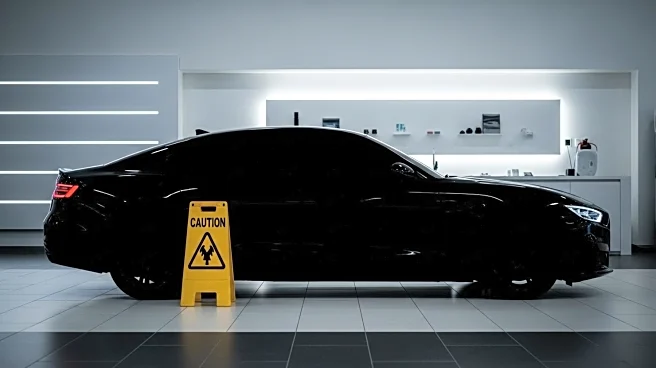What's Happening?
Kia America has issued recalls for its 2021 K5 model due to several safety concerns. The recalls address issues such as loss of power, potential fuel leaks, improperly installed airbags, and transmission oil pump failures. Additionally, a separate recall has been announced for the 2021-2022 K5 models equipped with the 2.5L turbo engine, which are at risk of fuel leaks at the high-pressure fuel pump connection. These recalls highlight significant safety risks associated with the affected vehicles, prompting Kia to take corrective measures to ensure consumer safety.
Why It's Important?
The recalls of the Kia K5 models underscore the importance of vehicle safety and the potential risks associated with manufacturing defects. For consumers, these recalls mean potential safety hazards that could lead to accidents or vehicle malfunctions. The automotive industry, particularly manufacturers like Kia, faces reputational risks and financial implications due to the costs associated with recalls and repairs. Additionally, these issues may influence consumer trust and purchasing decisions, impacting Kia's market position and sales performance. Ensuring vehicle safety is crucial for maintaining consumer confidence and avoiding legal liabilities.
What's Next?
Kia America is expected to address these safety concerns by notifying affected vehicle owners and providing necessary repairs at no cost. The company will likely work closely with regulatory bodies to ensure compliance with safety standards and prevent future occurrences. Consumers are advised to check for recall notifications and schedule repairs promptly to mitigate any risks. The automotive industry will continue to monitor such developments, as they highlight the need for stringent quality control measures and proactive safety protocols.
Beyond the Headlines
The recalls may prompt broader discussions about automotive safety standards and the responsibilities of manufacturers in ensuring vehicle reliability. There could be increased scrutiny on the processes involved in vehicle design and production, as well as the effectiveness of existing safety regulations. This situation may also lead to heightened consumer awareness and demand for transparency regarding vehicle safety records and recall histories.











